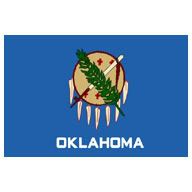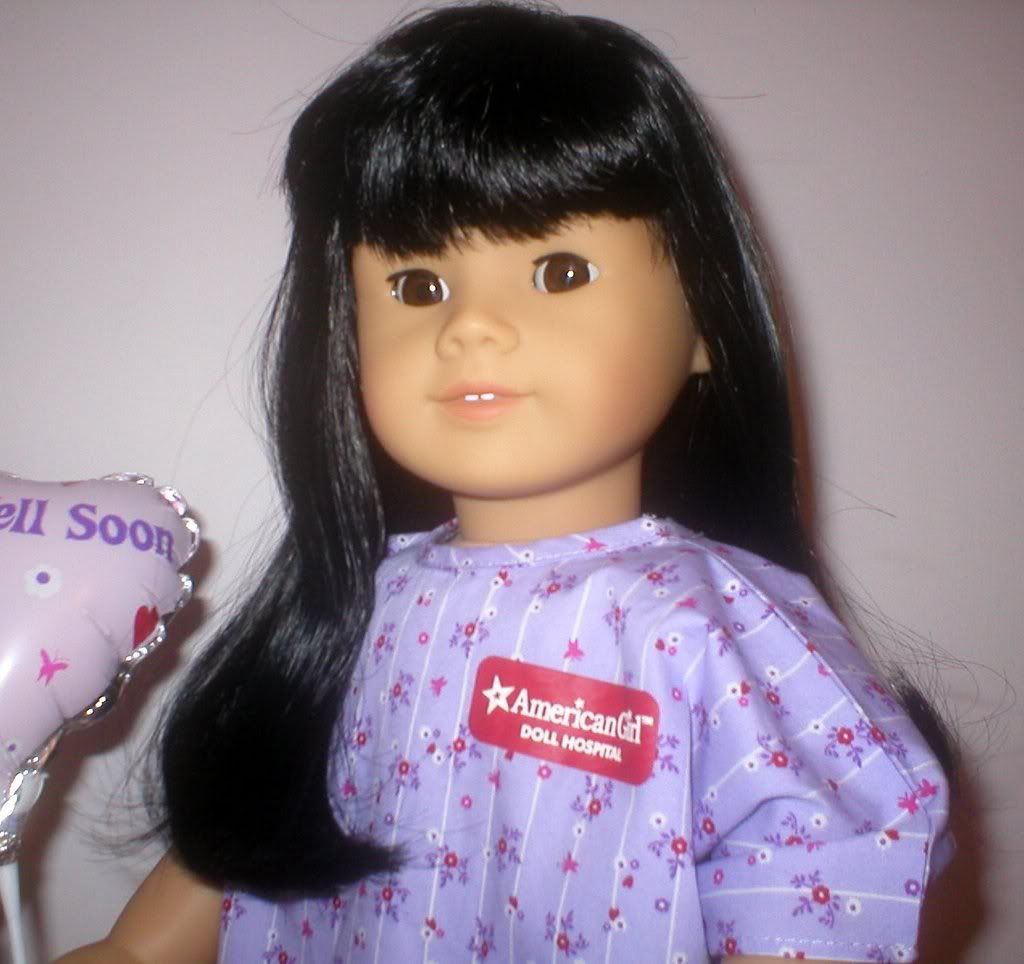I’m on my way to Hawaii soon, but before I left I took the time to say good bye to my new home town, Enid, OK. Enid is a small (about 47,000 people) town located in northwestern Oklahoma, about 70 miles north of Oklahoma City (the state capital). I live here now because Enid is home to Vance Air Force Base, which trains pilots for the Air Force, Navy and Marines. The town was founded when the Cherokee Opening (land that originally belonged to the Cherokee Tribe) was opened under a land run. (That's where the first person to get to a piece of land gets to buy it!) Lots of settlers came by covered wagon and horse a hundred years ago to settle the land and farm, just like Kirsten Larson’s family did in Minnesota.
Oklahoma celebrated its 100th year as a state last year. It was originally Indian Territory (land set aside for use by Native Americans, who were called “the Indians” back then) . Oklahoma is very proud of its Native American heritage. The name of the state comes from the Choctaw words okla and humma, meaning "red people," and its nickname is “The Sooner State” (after the cheaters who came in early during the land run to claim their land). Oklahoma produces a lot of oil and food. During the 1 ½ hour drive from our house to Oklahoma City (which is where we have to go if we want to go to Target or a good mall!) all you see is fields, cows and an occasional oil pump - it’s flat, flat, flat here - but there are some small mountain ranges and forests in the eastern part of the state.
I am still trying to get used to the unusual weather here. (The saying in Oklahoma is, “If you don’t like the weather, wait 5 minutes…it will change.”) The lightning and thunderstorms are spectacular, the summers are really hot and though snowfall isn’t usually too bad in winter there are terrible ice storms in this part of the state. Oklahoma is a “severe weather state” which means it can have really destructive weather, in our case severe thunderstorms and tornadoes. Most of the state lies in “tornado alley,” the part of the US which has the most annual tornadoes. Students here have “tornado drills” in school where they go to the safest part of the building (at our school it’s the reinforced central hall outside the classrooms) and practice what to do if a tornado hits (you sit up against the wall with your knees up and head down and your hands covering the back of your neck). Houses here often have a special safe room built in just in case a tornado hits. Everyone here knows where the closest tornado shelter is so they know where to go in case the tornado siren sounds a warning.
Here are a few other things I have found interesting about Oklahoma:
Oklahomans are very proud of their state flag, which has an Osage warrior's shield (made from buffalo hide and decorated with seven eagle feathers hanging from the lower edge) in the center. The background is a field of blue borrowed from the blue flag that Choctaw soldiers carried during the Civil War. The state flag flies everywhere here and students in schools salute not only the American flag every morning but “the flag of the state of Oklahoma whose symbols of peace unite all people.”
Oklahoma is bordered by six states: Texas to the south and west, Arkansas and Missouri to the east, Kansas to the north and Colorado and New Mexico at the tip of the northwestern Oklahoma panhandle.
Oklahoma has the largest Native American population of any state in the U.S. Many of the 250,000 American Indians living in Oklahoma are descended from the 67 tribes who inhabited the Indian Territory. Oklahoma today is tribal headquarters for 39 different tribes.
The Oklahoma City National Memorial is located in downtown Oklahoma City and is the largest one of its kind in the nation. It honors “the victims, survivors, rescuers, and all who were changed” at the site of the Federal Building which was bombed on April 19, 1995. The part of the memorial that is the most heartbreaking is The Field of Empty Chairs, 168 empty chairs, one for each person who died that awful day. A bombing victim's name is etched in the glass base of each chair, with their chair representing the empty chair at the dinner table of the victim's family. The chairs are arranged in nine rows symbolizing the nine floors of the building, and each person's chair is on the row (or the floor) on which the person worked or was visiting when the bomb went off.
Oklahoma is an interesting place to live and I have learned lots about American history while I have been here. I can’t wait to learn more about other states on my trip!

